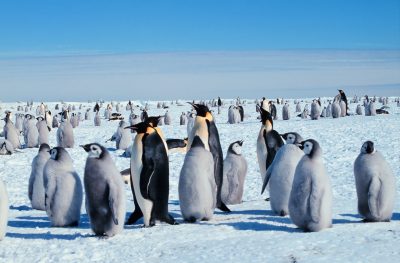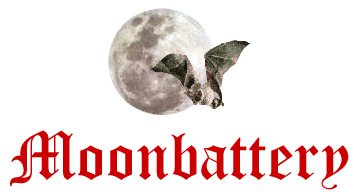Ecological Disruption and Militarization of Antarctica Will Push the Planet Closer to Tipping Points

All Global Research articles can be read in 51 languages by activating the Translate Website button below the author’s name (only available in desktop version).
To receive Global Research’s Daily Newsletter (selected articles), click here.
Click the share button above to email/forward this article to your friends and colleagues. Follow us on Instagram and Twitter and subscribe to our Telegram Channel. Feel free to repost and share widely Global Research articles.
Global Research Wants to Hear From You!
***
Antarctica, a continent about 40% larger than Europe in area, has also been called the world’s largest desert and the coldest, windiest, loneliest continent. Such descriptions do not exactly make this the most attractive continent, but in keeping with our times, those looking for minerals and geo-strategic advantages can find their own allurements.
So far this continent has been among the relatively better managed places in the world, but this can change rapidly with the increasingly emerging fearful possibilities of ecological disruption and even militarization.
.
.
If such a drift takes place, this will be a tragedy much beyond this continent as Antarctica has a very important role in protecting the badly endangered ecology of the entire planet.
The vast ice sheets which cover this continent almost entirely make an important contribution in maintaining heat balance by naturally deflecting sun rays, and this has an increasingly more protective role for earth. This continent contributes also by maintaining the water circulation system.
The glaciers here are estimated to have 70 per cent of the freshwater supply of the world.
This is a habitat for many species which are found only here, and some of the species found here, such as the larger whales, have important protective roles on their own.
Although best known for its many species of penguins and seals, Antarctica is also home to its unique krills which provide food for many species apart from playing other ecologically important roles.
Although ecologists have been warning against increasing dangers of plastics, other pollutants and above all invasive species being introduced here in recent times as well as the threat posed by destructive fishing practices, on the whole the continent has been reasonably well protected so far in terms of any locally caused ruin. However in terms of the impact of the wider climate change and global warming, of course the fragile ecology of this continent has suffered in terms of heavy melting of ice and glaciers and habitats of several species being threatened in the process.
However if future activities contribute much more heavily to local ecological ruin, then the vicious cycle will be completed as global warming melts the continent, also releasing more buried carbon, on the one hand and on the other hand local ruin disrupts the continent’s protective role and contributes further to climate change and other serious ecological ruin, pushing the continent closer towards tipping points.
So far much harm could be avoided because of the systems put in place by the Antarctica Treaty System (ATS) created by the Antarctica Treaty of 1959/1961 which put in place a system of avoiding exploitation and exploration of minerals as well as banning military activities/militarization. This was strengthened further by the follow-up protocol framed in 1998 which beautifully agreed to preserve the Antarctica as an ‘International Nature Reserve Dedicated to Science and Peace’. This protocol is supposed to last at least for 50 years up to the year 2048 when again hopefully this can be extended.
However this system could function reasonably effectively so far because most of the involved countries were not motivated to disrupt it. Now with an increasingly more divided world which is more hawkish on exploring geo-strategic advantages and which is also getting greedier for certain rare minerals or other valuable natural resources, this can change.
While the systems on place have worked well here so far, their loopholes and susceptibilities will be exposed once the main actors involved become more aggressive. To give an example, the current system gives all exemptions for research stations, even some military personnel. This can be misused to get in more military personnel. Research is supposed to be for civilian purposes, but exploiting dual use possibilities as well as some hidden research, work of military importance can also be taken up. Similarly, research work can include secret mineral exploration work as well, which is most likely to lead to wider mineral exploration and ultimately mining work if the prospects are found to be very alluring.
There are prospects for lucrative fishing as well as for creating new sea routes. Domination of the sky here can lead to a big military advantage over a wide area. The clear sky here may delight nature lovers, but those interested in space warfare research and satellite tracking may take a very different view of the possibilities.
The original treaty was signed by 12 countries. Seven out of these have claimed territories—Argentina, Australia, Chile, France, New Zealand, Norway and UK. No less important is the reported fact that the USA, Russia and China have reserved rights to making future claims. Many more countries, over 30, have set up permanent research bases. Even efforts for dividing the region along imaginary lines have been discussed, making a mockery of existing treaty and protocol. However so far the treaty and the protocol are in place, and this is a saving grace.
However clearly many more efforts for strengthening the provisions of peace and ecological protection are needed. One option is to entirely do away with territorial claims and to hand over the continent to the United Nations for governing it entirely on the basis of complete peace and ecological protection as a common heritage of all humankind and forms of life.
*
Note to readers: Please click the share button above. Follow us on Instagram and Twitter and subscribe to our Telegram Channel. Feel free to repost and share widely Global Research articles.
Bharat Dogra writer is Honorary Convener, Campaign to Save Earth Now. His recent books include Protecting Earth for Children, Planet in Peril, Earth without Borders and A Day in 2071. He is a regular contributor to Global Research.
Featured image is from the Public Domain



